Our annual Open Call opportunity for script submissions is currently open (the deadline is Tuesday 5th December at noon).
During the submission window we've been running a series of drop in events for writers to ask any questions they have about the opportunity. The final one is taking place on Monday evening at 5pm, full of details of how to take part are here.
One of the most frequently asked questions during the drop-ins has been 'What is the outcome from the Open Call?'. The answer to that is that successful writers may be invited to interview for a place in one of our development groups, either Scripted (previously known as Drama Room) or Voices.
And to follow that up 'What does a place in one of your groups actually involve?'
To try and answer that question, read on to get a sense of what happens if you are invited to take part in our Voices development group.
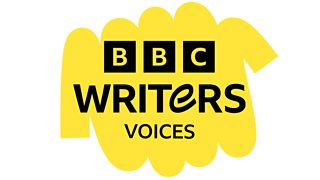
The Voices writer development programme runs once a year and lasts for about six months. The aim is to offer an insight into how the television industry works, providing participants with the core tools and knowledge to begin their TV writing journey. The writers who take part are mostly identified via our annual Open Call opportunity plus some additional scouting work (for example at the ). We run six Voices sub-groups from six hubs across the UK: Northern Ireland, Wales, Scotland, England - North, England - South and London. Each of these groups is managed by the staff who are based in each of our hubs. There are normally around 12 writers in each sub-group, so around 70-72 writers in total.
Voices sessions are a combination of local sessions (with the other writers in your hub) and full-cohort sessions. We usually try and bring the local groups together in person at least twice, with the majority of the rest of the sessions taking place online. Sessions generally run weekly over lunchtimes or in the evening to fit around the group members' other commitments, be that work, childcare or other factors. During their time on Voices, writers develop a television series outline which involves some homework, alongside viewing recent TV dramas for discussion and analysis during the sessions. Writers are not paid to take part but the programme is completely free, plus we cover any necessary travel and accommodation costs.
We are currently finalising the writers who will take part in Voices 2024, which will kick off in January. These are writers who submitted scripts to our Open Call which closed back in December 2022. Due to the number of scripts we receive (over 4000 in each Open Call), the reading process takes around six months. We firstly determine the writers who we want to consider for the Scripted group before moving onto Voices, so interviews for Voices take place in the autumn ahead of the writers beginning the programme in the following January.
Sessions
(Based on Voices 2023, this is just an outline and will vary depending on the availability of guest speakers etc.)
Week 1 (Local): In Person - Meet the writers who are part of your local Voices hub. These meet-ups are at the ±«Óãtv's various offices across the UK (London, Belfast, Cardiff etc) The group get the chance to introduce themselves and find out about the other writers in their hub. We explain the Voices programme and what is expected from the writers. There is also the chance to find out more from alumni from previous years.
(±«Óãtvwork to start thinking of 3 ideas for a TV series that you want to develop.)
Week 2 (Full): Big Ideas 1 - What Works on TV.
Week 3 (Full): Big Ideas 2 - What Works on TV (with a presentation from the ±«Óãtv Audiences Team).
Week 4 (Local): Sharing ideas with your local hub.
Week 5 (Local): Sharing your initial ideas with the ±«Óãtv Writers' team in your area and receiving feedback to select one idea to take forward.
Week 6 (Full): Story & Structure 1, Introduction
(±«Óãtvwork - some viewing of recent TV drama)
Week 7 (Full): Story & Structure 2, Unpacking a First Episode (following viewing homework)
Week 8 (Full): Focus on Characters in Drama
Week 9 (Full): Story & Structure 3, John Yorke's 10 Questions (following viewing homework)
(±«Óãtvwork to apply the 10 Questions to your chosen development idea)
Week 10 (Full): An introduction to TV Drama Development documents and Writing a Series Outline
(±«Óãtvwork to start working on a Series Outline)
Week 11 (Local): Story & Structure 4, Peer Group sessions on the 10 Questions
(±«Óãtvwork to work on the first draft of your Series Outline, 2 weeks writing time during the Easter holiday.)
Week 14 (Full): Pitch to Production with ±«Óãtv Commissioning Executives
Week 15 (Full/Local): Guest speaker and first feedback session on Series Outlines
Week 16 (Full/Local): NFTS Working with a Script Editor and feedback sessions on Series Outlines
(±«Óãtvwork to work on second draft of Series Outline)
Week 17 (Full): Script to Screen, Getting your Script Made (with a guest writer and producer)
Week 18 (Full): How to Get an Agent (with guest speakers)
Week 19-21 (Local): Writing weeks and online drop-ins
Week 22 (Full): The Business of Being a Writer (with guest speakers)
Week 23 (Full): What Makes a Good Spec' Script & Writing the Pilot Episode
Week 24 (Local): Meet Local Producers and final farewell session (In Person)
Working with a Script Editor
Through our relationship with the (NFTS) a sub-section of the Voices writers also get the opportunity to work directly with a Script Editor from the NFTS Script Editing course to develop their series outline idea and write the pilot episode as a spec' script. The writers retain all rights in the resulting script and can submit it into our next Open Call or send it, as an example of their work, to agents or industry ahead of general meetings if they wish. The script will not be considered by ±«Óãtv Drama Commissioning who only accept projects via an attached production company.
We asked several of the former Voices writers to describe the experience and what they gained from it.
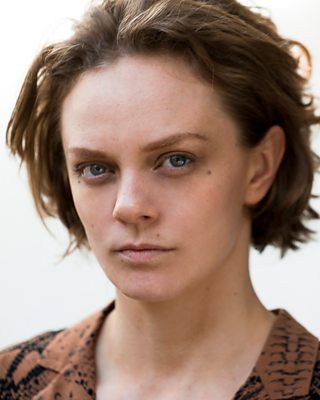
Florence Bell - Voices (London hub) 2022
I was paired with Camille following on from London Voices and had the chance to develop my script from treatment to draft and series outline with her. I found that she 100% understood the story I was trying to tell and over the course of working together we really discovered the core of the idea.
Nailing the premise in that way allowed us to streamline the series arc so that we told one narrative elegantly. She also gave me invaluable guidance on stuff I wouldn’t have seen for myself, like holding back on character introspection early on - ‘we still have a whole six eps for them to discover that!’
Most of all, I loved being part of a two person team. Writing and hitting deadlines can be an isolating experience and being accountable to not only myself but someone else who knew and cared about my story was great. I came out the other side of the process with a spec script I’m very proud of and a view of the series that I’m really excited about. I was able to craft my story in ways that I’ll take with me into every project.
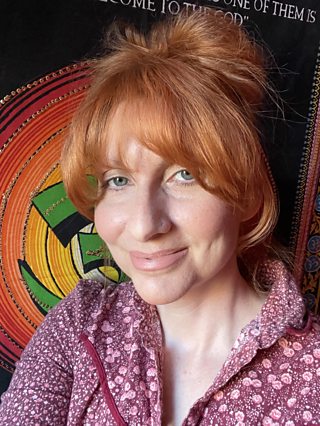
Alex Clarke (Voices - North of England hub 2022)
Being on the ±«Óãtv Writers/ scheme was a pure joy! Scripts need support to emerge, and the scheme offered me incredible support. I love the script I created.
The process was robust and collaborative, full of respect and flexibility. My script editor was creative, enthusiastic, and open-minded. Despite us coming from different backgrounds the script benefited from this, he helped me see how some moments could be interpreted differently by demographics outside my awareness and vice versa (there’s nothing worse for a script than an echo chamber).
My editor’s ability to listen and be curious enabled trust and this meant we could interrogate the work without fear, all ideas were welcome until collectively discarded. We also had fun, plotting, playing, laughing, and worked fast (around my crazy day job hours) which helped the script grow stronger, it’s always best to strike while the iron’s hot.
Once the script was pitch ready, it was then snapped up for further development with , and I know the ±«Óãtv/NFTS scheme played a role in getting me there. I’ve often said that great scripts need great teams and I’ve been fortunate enough to have great teams throughout the script’s whole development. The NFTS scheme was truly life changing and I only wish I could do it all again!
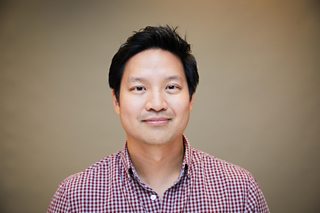
Kevin Shen - Voices (London hub 2022)
After finishing London Voices, I had the opportunity to work with a script editor from NFTS to build my pitch into a full pilot and series treatment, and it turns out writing is a whole different ballgame when you’ve got someone else on your team!
My script editor really took the opportunity to get to know me and my writing (she even came to a playreading of mine to further understand my voice!), and helped me execute ideas that I wanted to try but wasn’t quite sure would work. She gave me assignments and exercises to explore these and to flesh out my characters and their journeys. It was great to have a partner who was really rooting for my script and keeping me accountable, while offering insightful feedback and acting as a sounding board throughout. Not to mention, our notes sessions were always a great excuse to meet up and eat!
It was the first time I’d worked with a script editor, and it offered me a new, more structured way of writing as well as the experience of receiving and incorporating feedback in various forms during the writing process. It’s also been very helpful when in meetings with development execs to be able to say that I’ve had a really positive, collaborative experience working with a script editor, preparing me for what’s to come!
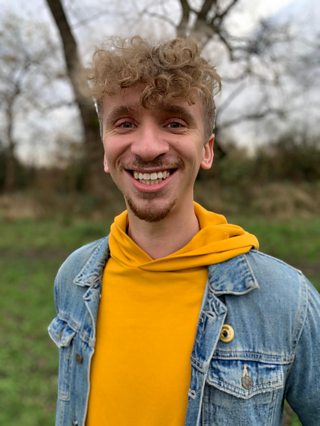
Matthew Smith
Before being paired with my script editor, my TV drama idea was a grizzly, absurd, cheesy and contradicting fatberg. Then here comes NFTS student Henry Holmes. Henry translated all the cryptic industry spiel and pretentious auteur jargon (that us writers hear so bloody often), and shared clear, practical opinions throughout our time working together.
Despite Henry was a friendly and patient script editor, the miserable git in me was preparing for him to contort my rumpled fatberg into a sterile, vanilla, TV-friendly script. We’ve all heard those anecdotes before. Thankfully, I was wrong.
The grizzly got more grizzle. The absurdity was raised and praised. Cheesy scenes evolved into sincere moments of fidelity, and contradicting genres were shamelessly elevated. Henry understood what interested me as a writer. We recognised the potential of my show and leaned in further and further and further.
I’d absolutely recommend this NFTS pairing to other writers. My idea still rumbles with its grizzle and contradictions, but this fatberg is now a beautiful and titillating fatberg; a show which is an accurate representation of my voice, and a calling card script that’s secured multiple meetings with production companies.
